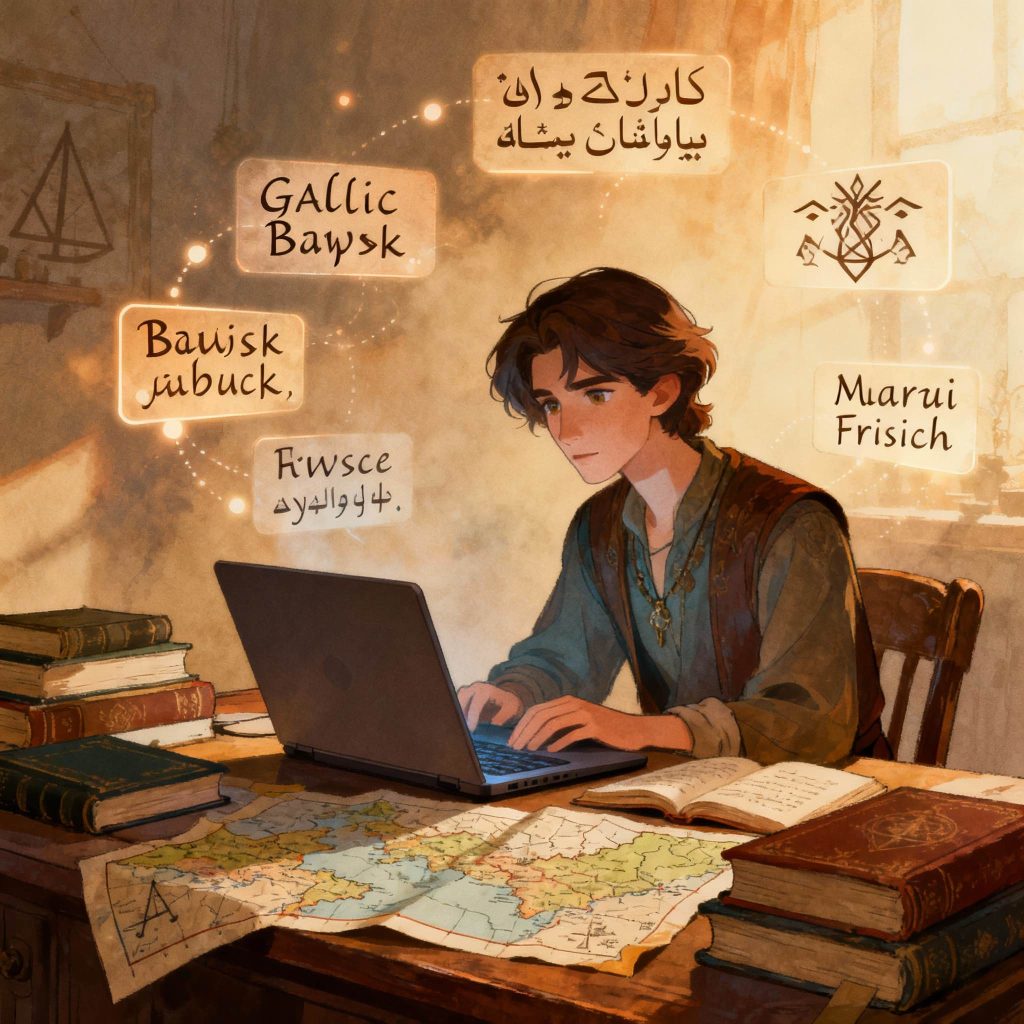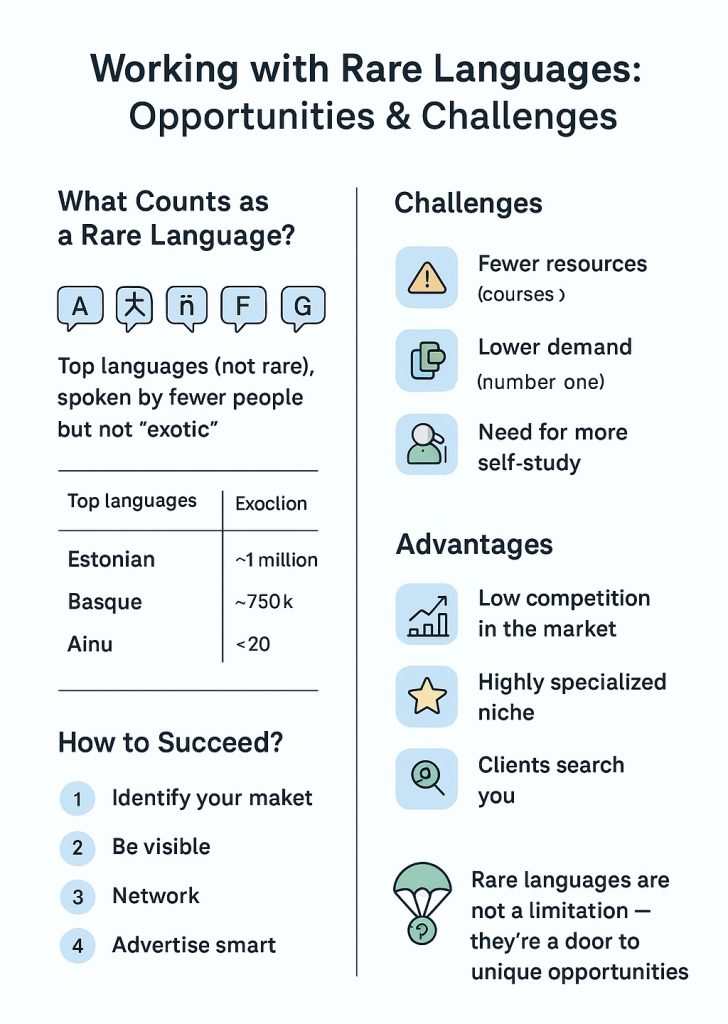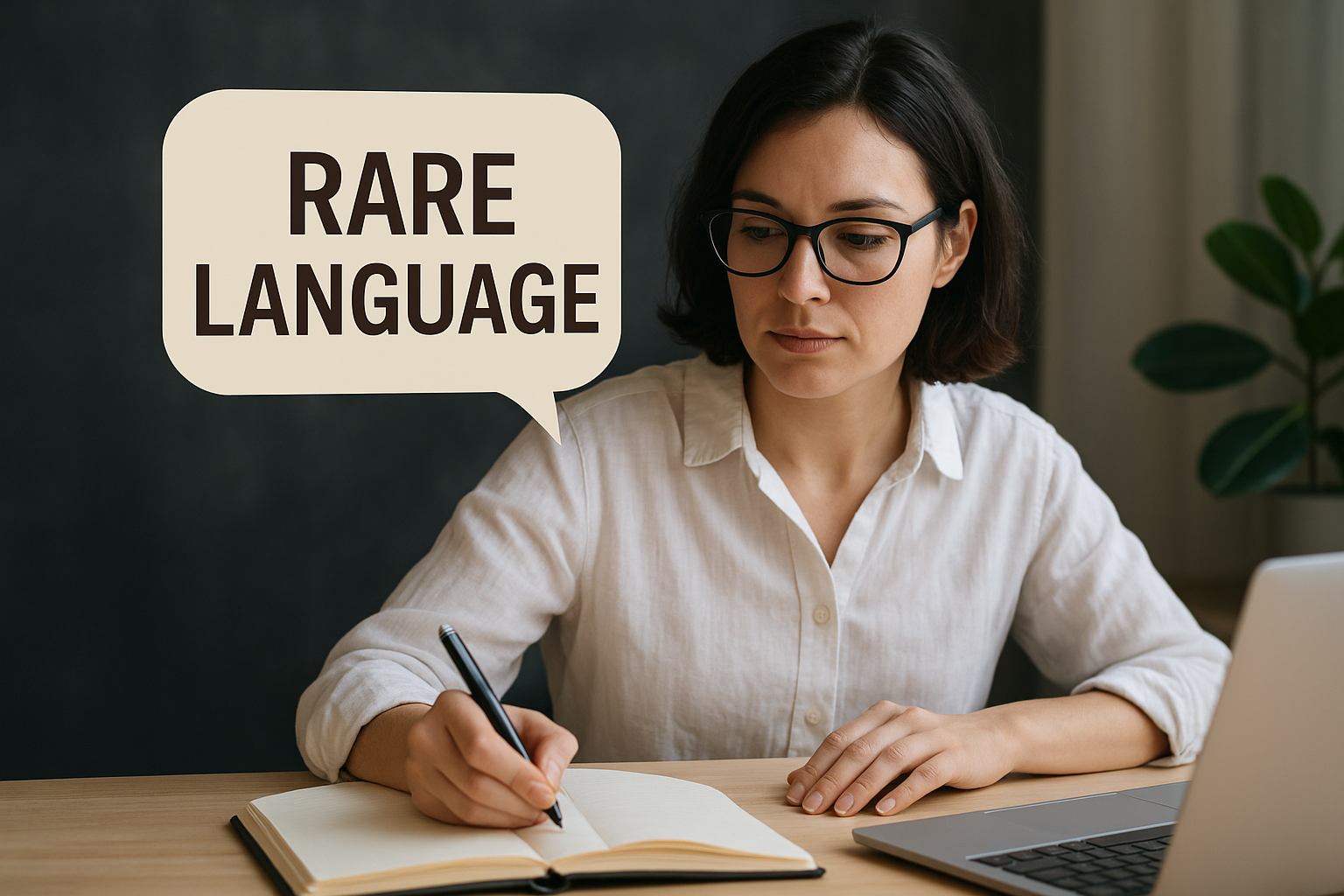When people talk about translators, the first languages that usually come to mind are English, Chinese, French, German, or Spanish. These are the “big” languages spoken by hundreds of millions of people worldwide. But the translation industry doesn’t stop there. Behind the scenes, there’s a growing demand for specialists who work with rare languages—tongues that may not be widely spoken but are still vital in business, law, science, and culture.
So, what does it mean to work with rare languages, and is it worth choosing this path as a translator?
What Counts as a Rare Language?

There isn’t a strict definition of “rare.” Usually, it refers to any language outside the global top ten. Some—like Estonian or Icelandic—have relatively small speaker populations but still come with learning resources, textbooks, and online content. Others are truly exotic, spoken by only a few thousand people, where learning materials and qualified teachers can be hard to find.
Take Estonian, for example. With just over one million native speakers, it’s the rarest language in Europe. And yet, students can still find plenty of courses, YouTube videos, and study guides to master it. By contrast, for endangered or minority languages, resources may be scarce, and translators often have to rely on community learning or immersive experiences.
📊 Table 1: Rare vs. Exotic Languages
| Category | Number of Speakers | Availability of Resources | Examples |
|---|---|---|---|
| Rare Languages | 500,000 – 10 million | Good (courses, books, online media) | Estonian, Armenian, Georgian |
| Exotic Languages | < 100,000 | Limited (few teachers, community only) | Basque, Frisian |
The Market Reality: Lower Demand, Lower Competition
Let’s be honest: the market for rare language translation is smaller than for English or Spanish. Fewer companies and clients require these services, which means it can be harder to find steady work. But there’s a silver lining: less competition.
If a client needs a certified translator for an Estonian legal contract or a Mongolian technical manual, they don’t have hundreds of providers to choose from. They’re looking for you.
📊 Table 2: Translation Market Dynamics
| Language Group | Demand Level | Competition | Client Search Behavior |
|---|---|---|---|
| Common Languages | Very High | Very High | Wide choice of translators |
| Rare Languages | Low/Medium | Low | Clients actively seek specialists |
How Translators Can Succeed with Rare Languages

Building a career in rare-language translation is possible—but it requires creativity and persistence. Three key strategies stand out:
- Identify potential clients. Who actually needs your skills? It could be local immigrant communities, companies entering new markets, or institutions with cultural or political ties.
- Build visibility. Blog about your expertise, share case studies, join professional associations, and connect with colleagues. In a niche market, networking is gold.
- Use targeted promotion. If there’s a sudden rise in immigration from a country or increased trade with a region, set up ads around keywords like “certified [language] document translation.”
💡 Infographic idea: A two-axis chart showing Demand vs. Competition, with common languages in the “High Demand / High Competition” corner and rare languages in “Low Demand / Low Competition.” This visually explains why specialization can be a unique advantage.
Balancing Rare and Popular Languages
Many professionals wisely combine their rare language skills with a more popular pair. For example, instead of only offering Russian ⇄ Estonian translation, you might also work with English ⇄ Estonian. This way, you balance stability (thanks to a widely used language) with the competitive edge of your rare specialization.
It’s about having a “safety net” while still standing out in the market.
Final Thoughts
Working with rare languages is not the easiest career choice. It demands initiative, self-promotion, and sometimes patience during slow periods. But if you’re passionate about a language and committed to turning it into a professional skill, it can set you apart in a crowded industry.
At our translation agency, we believe every language matters—whether spoken by millions or just a few thousand. And for businesses, legal firms, or researchers who need these specialized services, the right rare-language translator is not just useful—they’re irreplaceable.
Infografica



Leave a Reply